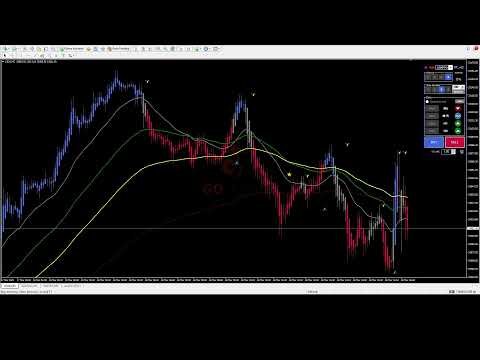Investing in stocks and bonds: Different kinds of stocks & bonds

Most bond investments, however, seek to provide regular income and capital preservation. As such, they are generally considered to be a lower risk investment https://trading-market.org/23-software-development-metrics-to-track-today/ when compared with stocks. Stocks and bonds each have a different level of risk and behave differently in response to changes in the financial markets.
These funds specialize in buying and selling bonds and pool investors’ money to do so, collecting a fee (expense ratio) to cover costs and earn a profit. Depending on the type of bonds you want to own, you can invest in a bond ETF that specializes in it. While stocks are ownership in a company, bonds are a loan to a company or government.
- The investment component of a bond is the interest that is accrued and paid to the investor over the course of the bond’s life.
- You can also buy funds like mutual funds or exchange-traded funds that invest money in a wide variety of stocks, bonds and alternatives for you.
- Try to keep them in mind when choosing which investments to make.
- Learn how to become a more successful investor with the time-tested investment strategies of dollar-cost averaging, asset allocation, diversification and more.
- That’s a cheap way to diversify your assets and protect yourself from the risk of holding a single stock.
Learn how to become a more successful investor with the time-tested investment strategies of dollar-cost averaging, asset allocation, diversification and more. When an investor purchases corporate bonds, the company is then in debt to the investor. A bond is used when the company wants to borrow from the general public to expand the company. If investors buy stocks in the company, they become part-owners of the company.
What Is Portfolio Management?
Not all products and services are available in all states. Not all Northwestern Mutual representatives are advisors. Only those representatives with Advisor in their title or who otherwise disclose their status as an advisor of NMWMC are credentialed as NMWMC representatives to provide investment advisory services. Stocks can be high-reward investments given that they have the potential to result in large returns over a long period of time. They tend to grow with the economy and can help stay ahead of inflation.
What Are Municipal Bonds and How Do They Work? – MarketBeat
What Are Municipal Bonds and How Do They Work?.
Posted: Wed, 12 Jul 2023 14:11:49 GMT [source]
The economy thrives when the stock market maintains its robustness and overall health. When you hear about equity and debt markets, that’s typically referring to stocks and bonds, respectively. With bonds, you usually know exactly what you’re signing up for, and the regular interest payments can be used as a source of predictable fixed income over long periods. Stocks represent partial ownership, or equity, in a company.
Stocks
That means bonds are relatively safe, as long as the entity doesn’t go belly up. From real estate to precious metals, the world offers a variety of options for investing your money. Investors can also invest with options, which are contracts among investors to either buy or sell shares of a stock at an agreed-upon price in the future. That said, not all stocks have the same level of risk, and not all bonds are safe from fluctuations. A common misconception with stocks is that they all have equal levels of risk and that no other vehicle is riskier. And while generally speaking, stocks experience more market variance, high yield and emerging market bonds can carry more risk than some equities.

When you purchase a stock, you’re buying an actual share of the company. That’s why stock is also referred to as “equity.” This applies to established companies and IPOs that are new to the market. By owning a mix of different investments, you’re diversifying your portfolio.
Risk vs. reward
Now that you know the difference between stocks and bonds, it’s up to you to decide which investment type is best for you and your financial goals. If you buy a bond and hold onto it until its maturity date, you won’t have a gain or a loss; you just get the principal back. But if you sell the bond on the secondary market for more than you paid for it, you’ll have to pay capital gains taxes. With bonds, the company or organization issuing the bond acts as a borrower and raises money from investors to fund projects or expansion efforts.
- While stocks are equities, bonds are known as debt securities.
- One can also trade these stocks in the secondary market through stock exchanges.
- This is a common occurrence for larger publicly-held companies, and much more rare for smaller entities that do not want to go through the inordinate expense of going public.
Whereas, when your financial responsibilities increase, bonds would be a great asset in your portfolio. Stock investments involve risk, including loss of principal. High-quality stocks may be appropriate for some investment strategies. Ensure that your investment objectives, time horizon and risk tolerance are aligned with investing in stocks, as they can lose value.
Voting Rights
Depending on the type of bond, you can buy them through online brokerage accounts, mutual funds, exchange-traded funds (ETFs) or directly through the government or government agency. By buying stocks, you can potentially grow your money through capital appreciation, meaning the stock’s price increases. You could also earn dividends if the company distributes a portion of its earnings to stockholders. To put it another way, when an investor buys a bond, they’re loaning money to a company in exchange for regular interest payments.
Both options can play an important role in your investment portfolio, but how much you invest in each depends on your investment goals, time horizon and risk tolerance. Understanding the fundamentals of https://currency-trading.org/software-development/how-to-install-sql-server-developer-edition/ stocks and bonds as well as their differences can help you make the best investment decisions for your needs. Bonds are often best for short-term goals or for investors who are particularly risk averse.
Since stocks and bonds generate cash differently, they are taxed differently. Bond payments are usually subject to income tax, while profits from selling stocks are subject to capital gains tax (which is lower for some brackets). If the company goes bankrupt during the bond period, you’ll stop receiving interest payments and may not get back your full principal. In both scenarios, you’re investing in the same company, but the structure of the investment and potential outcomes are quite different.
For example, there are two classes of Alphabet (GOOGL 0.71%)(GOOG 0.7%) shares, with GOOG owners able to vote shares and GOOGL owners having no voting rights. You may also hear stocks referred to as equity or shares. If someone says they own 500 shares of Facebook, they mean they own 500 very small pieces of Facebook. Companies issue stock to the public and that stock trades (is bought and sold) between investors on exchanges, like the New York Stock Exchange. Both stocks and bonds may be traded on a public exchange. This is a common occurrence for larger publicly-held companies, and much more rare for smaller entities that do not want to go through the inordinate expense of going public.

Some funds are more risky, others less so, depending on what they’re invested in. When you buy a bond, you’re essentially becoming a lender, since bonds are really nothing more than an IOU that’s been issued by a government or corporation. Our experts have been helping you master your money for over four decades. We continually strive to provide consumers with the expert advice and tools needed to succeed throughout life’s financial journey. This information and recommendations contained herein is compiled from sources deemed reliable, but is not represented to be accurate or complete.
What Are the Differences Between Stocks and Bonds?
They serve different roles, and many investors could benefit from a mix of both in their portfolios. The benefits of investing in this type of stock are often similar to those of bonds. Most preferred stock dividends offer a fixed rate of income. When you purchase a bond, on the other hand, you’re essentially lending money to another entity. If you buy government bonds, for example, you become a lender to Uncle Sam.
Financial Literacy: Where Do I Start? – New Trader U
Financial Literacy: Where Do I Start?.
Posted: Sun, 16 Jul 2023 11:01:14 GMT [source]
All investments carry some level of risk including the potential loss of principal invested. With fixed income securities, such as bonds, interest rates and bond prices https://day-trading.info/beginners-guide-to-vantage-fx-review-2020/ tend to move in opposite directions. When interest rates fall, bond prices typically rise and conversely when interest rates rise, bond prices typically fall.
